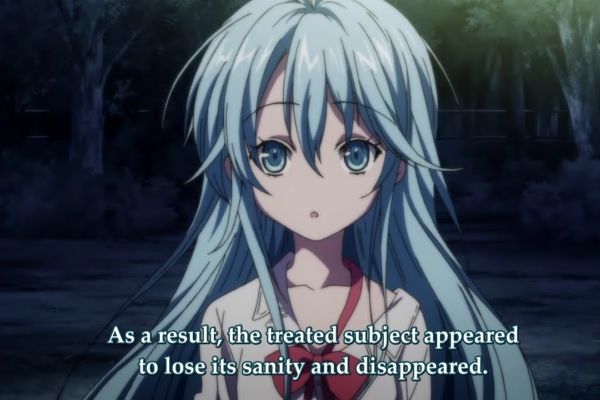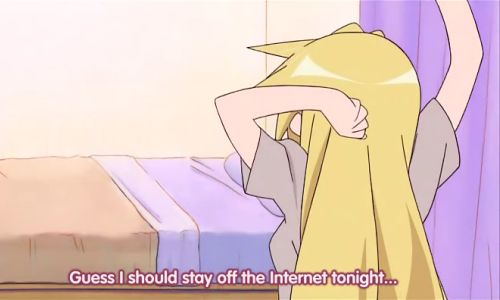“As a result, the treated subject appeared to lose its sanity and disappeared.” Unfortunately, this also seems to happen to blogs where the owner takes up a practice of meditating for hours a day. It seems to work fine in moderation though. Well, at least for the not disappearing part, so far. For the rest, judge for yourself.
We humans, and most animals, seem to have been made to sleep. Nocturnal animals sleep during the day, diurnal animals sleep during the night. Humans seem to naturally sleep some 9 hours a night, although most of us can get by just fine on 8, 7.5 or even 7. Much less than that and the majority will start to experience negative side effects. Â Some have trouble even on less than 8.
Since our furry friends also need sleep (and feathered and scaled ones too), it seems pretty obvious that this need is biological rather than psychological. I mean, you could tell someone that hunger is just a feeling, and he may believe you strongly enough to go on without eating for quite some while, but he would invariably fall ill after a while. It is the same with sleep, if not more so. Pretty much any healthy person can go a week without food (as long as they have water, at least!) but a week without sleep is virtually impossible to arrange, no matter how much you engage the person to keep them awake. And even should you succeed, most will turn clinically insane before the week is over.
So why then is it a scientific fact that some meditation gurus can get by on half as much sleep, or in extreme cases even less? Â And that even while they sleep, they still remain self-aware at the very least? Is it a miracle, a divine intervention overruling the usual laws of nature?
Actually there is a more this-worldly explanation, not that this world is not a miracle if you look at it in a certain way. But anyway! When you meditate, your brain waves gradually become synchronized across most of your brain. This also happens during sleep (except for the intense dream sleep, also called REM sleep). We spend some time early in the night in such REM sleep, especially as children and then gradually less over the years. Likewise we also spend some time, especially at the start of the night, in deep slow-wave (“delta”) sleep. Â But most of the night is taken up by theta and very low alpha sleep. And this is brainwaves we can also have while meditating.
Usually people spend their meditation time generating alpha waves. This corresponds to a state of quiet and relaxed awareness. The same frequencies appear naturally when we lie down and begin to relax toward sleep, if we don’t have insomnia. Actually, people who start meditating will have a tendency to fall asleep if they get too comfortable. Â But for an experienced meditator it becomes easier to stay awake and aware during meditation, and eventually more aware throughout the day… and finally throughout the night, for a few. Those who are able to reliably meditate even during the deeper theta waves, will basically get much of their “sleep” while meditating. The body and the brain both relax, but they remain aware instead of their mind drifting through fragmentary dreams.
So you may say the distracting functions of the brain are asleep, but the awareness is not. This, I believe, is how it works. But anyway, it works, but you are unlikely to see much of it if you start meditating during your midlife crisis. It tends to take a couple decades to get that far even if you start while you are young.
***
What else appeared to me in this context was acceptance. I had this idea that a lot of our sleeping brain activity is about problems, things we struggle with, things we fear or hope for, things we can’t let go of. I know that my own dreams at the beginning of the night tends toward the nightmarish – criminals, accidents, huge spiders – Â while late in morning the dreams are often erotic or social, or occasionally religious. So it is a subconscious – or at least unconscious – form of thinking that is more involved than thinking in words. A form of processing. Working through our fears and worries toward what we really wish for.
What if we become more accepting of reality? What if we pare down our worldly desires and our attachment, and thereby eventually our fears? Then the brain would simply not have the need to do a lot of processing of that kind, right? So that may also be another mechanism by which meditation and similar spiritual practices reduced the need for sleep. It may be a two-pronged attack, both psychological and biological.
***
Unfortunately for the topic, I cannot explore this in my personal life. I am not a guru or anything. I began meditating when I was fairly young – in my late teens if memory serves – and did so actively for a while. But I had some experiences that seemed supernatural, and decided to cut down on meditation to avoid this. So after that I meditated only when I felt an intense need for it, for the most part, until now in my middle age where I have experimented more systematically with meditation and brainwave entrainment. (They are not the same thing.)
It does seem from my experience that using deep brainwave entrainment (delta frequencies) does reduce the need for sleep a bit and generally makes me less sleepy during the daytime. But I have not tested using theta brainwave entrainment for several hours a day, to emulate the hours spent in theta each night. I am not sure I am motivated for it even now, even for the sake of science. Â Perhaps you or I will come across the writings of some actual guru who can tell us from firsthand experience. I am perfectly happy to take this second- or even third-hand. At least for now. You never know who I will be in the future, if any.




